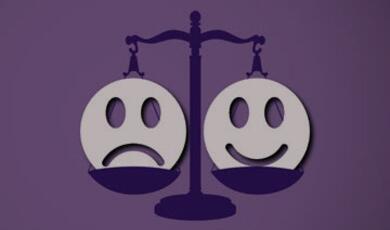Professor Delahunty will examine broader issues of the strengths and flaws within the family justice system, the challenges it has overcome and those it still faces.
As a barrister, you will be asked 'how can you act for someone who is guilty?'. This is just one of the ethical questions the Bar must confront. Barristers have a Code of Ethics that governs the working relationship with the client, the court and colleagues but ethical dilemmas in practice are rarely straightforward. Do we make value judgments about our client’s culpability? Does that affect how hard we fight their case? The answer to those questions should emphatically be ‘no’.
2018 saw a seismic change in the willingness of women to speak out about sexual abuse they had suffered at work and the willingness of others to hear and act on it. 2018 saw the creation of a #metoo movement called ‘Behind the Gown’ created by a group of barristers committed to tackling sexual harassment at the Bar. Professor Delahunty frankly confronts the anecdotal evidence and suggests ways in which we can learn from it.
The Children Act 1989 embodied a change in philosophy by making the child’s welfare the courts ‘paramount’ concern, moving away from the concept of parental rights towards the right of the child. It embraced the idea of shared parental rights and responsibilities and that children are best cared for within their families but not at the expense of suffering avoidable significant harm. Has the Act done right by children since 1989? Has it adapted to the challenges of childhood and society?
Cuts to legal aid, the concept of online justice, diversity within the legal profession and the judiciary, the independence of the judiciary from the state, the impact the press can have on perceptions of fairness of justice. Professor Delahunty explores the controversial issue of how the politics of the day or decade can affect the way in which the justice system functions in private and is perceived by the public.
What happens when doctors and parents cannot agree on whether a child should be given experimental medical treatment? Why is there any question mark over a parent’s right to decide if medical treatment for their child continues? From the parents of Aysha King who successfully secured proton beam therapy for their son to the despair surrounding baby Charlie Gard and his life-limiting genetic disorder: how does the court make decisions that can potentially prolong life or bring about the death of a child?
Over the course of her professorship, Jo Delahunty has striven to talk openly about the way in which the Family Court deals with emotive and challenging issues such as sexual abuse, child death in infancy, child neglect and child exploitation. In her final lecture this year, she will discuss at what personal cost that work is undertaken. How can one delete the retinal images of abuse after the case has ended?


 Login
Login










